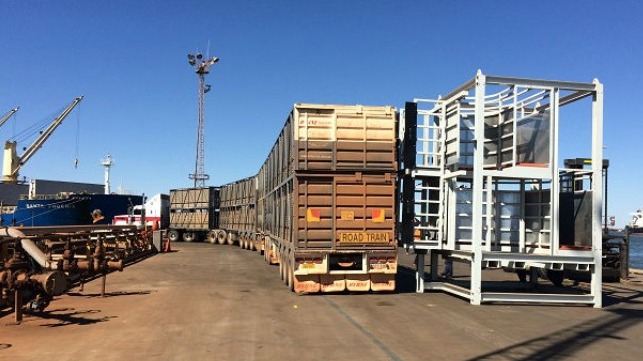Study: Observers Find Poor Conditions on Most Live Export Ships

A new study in the respected veterinary journal Animals suggests that inhumane conditions may be the norm - not the exception - on live export voyages.
The study is based on 37 reports filed by Australian government observers aboard live-export voyages from Australia to China. These government reports are published in summary form only, but the available details are enough to raise concerns for animal rights activists. 30 out of 37 of the independent observer summaries documented "poor pen conditions or insufficient space," according to co-author Dr. Di Evans, and "all 37 of them identified health issues such as painful eye disease, pneumonia or lameness."
In addition, over 40 percent of the voyages struggled to provide adequate water to the livestock. This is of particular concern for transits through the tropics, where heat stress adds to the challenging conditions aboard a live-export ship.
“Nearly a third of voyages had both food and water issues, which is completely unacceptable. These are inhumane conditions to be knowingly putting animals through and unless we see significant change, and ultimately an end to live export altogether, hundreds of thousands more Australian animals are going to suffer.”
Given the high average age of the livestock carrier fleet, it is perhaps unsurprising that nearly two-thirds of the observers also reported problems with the ship's equipment, including poorly-maintained fittings, failing water-supply systems and engine breakdowns.
“What this study makes clear is that this isn’t just one or two bad operators - these animal welfare risks are inherent in the live export trade. For example, a staggering 38 percent of voyages had food shortages or limited access to food, including more than one in 10 voyages having to ration food or exhausting the supply," said Dr. Evans.
No comments:
Post a Comment